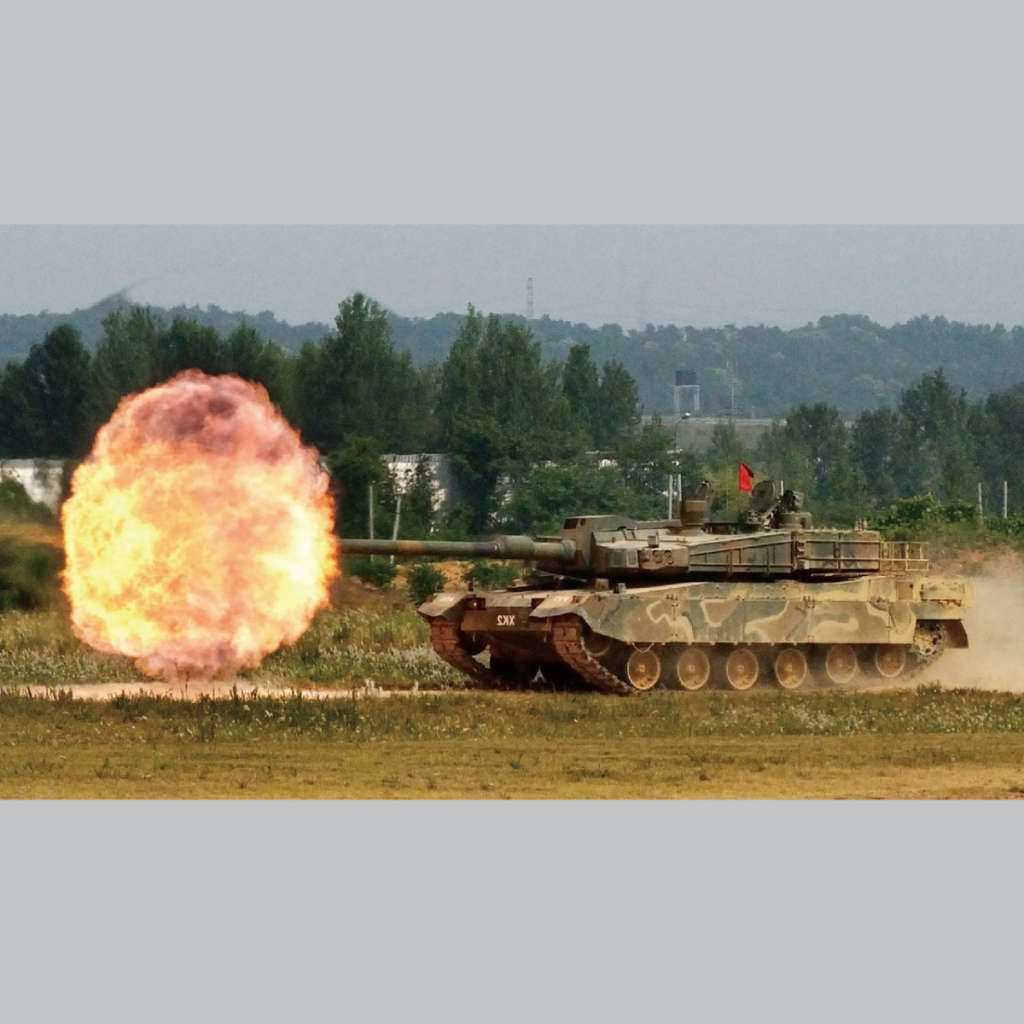
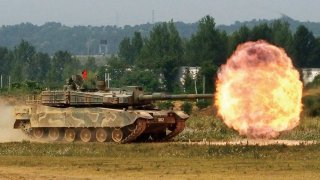
Why is the K2 Black Panther the Most Expensive Tank on Earth? America enjoys the world’s best geographical advantages. The United States dominates a vast, resource-rich continent – a continent populated by friendly neighbors, or at least non-threatening ones. The continent is flanked by two massive oceans – the Atlantic and the Pacific. These function as the world’s biggest moats, separating America from all other great-power nations. No other country enjoys such geographic benefits. Indeed, many countries are threatened by their geography, rather than blessed with it. Take South Korea as an example.
South Korea sits on the bottom half of a peninsula. Sitting in the top half of the peninsula is South Korea’s bitter rival – North Korea. Technically, North and South Korea are still at war; no peace treaty was ever signed to end the Korean War, even when hostilities ceased.
To this day, North Korea keeps roughly 10,000 conventional artillery pieces trained on the South Korean capital, Seoul. North Korea’s conventional weaponry has the capacity to inflict apocalyptic damage on South Korea. Similarly concerning, North Korea now has capable nuclear weapons.
Indeed, South Korea inhabits an unstable geography. Given the country’s proximity to their mortal rival, Seoul has invested heavily in ground forces. This investment has resulted in, among other things, one of history’s most advanced battle tanks, and one of the most expensive: the K2 Black Panther.
The K2 Is a Once in a Generation Tank
The K2 Black Panther costs a whopping $8.5 million per unit – the most expensive on Earth.
Each unit thus represents a significant investment in South Korean defense capabilities. Hyundai, better known for its mid-to-low-priced cars, manufactures the K2. But the K2 is no Hyundai Santa Fe. This is a serious, cutting-edge piece of technology – the world’s first and only fourth-generation battle tank.
In the 1990s, South Korea held a tank gap over North Korea. Pyongyang depended on outdated, early Cold War models like the Soviet T-55 and Type 59. Meanwhile, the U.S.-backed South Korea was operating relatively sophisticated K1 and KA1 tanks, which were designed in the 1980s. Still, given the dangerous nature of South Korea’s geography, and their proximity to North Korea, South Korea was not satisfied with their tank advantage. They set about designing even more advanced machinery.
Research for the K2 began in the late 1990s. The South Koreans wanted a tank that featured automatic target tracking devices, autoloaders, and 21st century operating software. By the early 2000s, the K2 had entered its testing phase.
In 2014, the K2 entered frontline service as clearly one of the world’s best operational tanks.
K2: Hard to Stop
The K2 packs a heavy punch, armed with a CN08 120mm 55-caliber smoothbore gun. An autoloader facilitates the firing of up to 10 rounds per minute. The CN08 is Hyundai-built – and beat out Rheinmetall’s experimental 140mm smoothbore gun in the competition to adorn the K2.
As a supplement to the main gun, the K2 carries two machine guns: one 12.7mm K6 heavy machine gun and one 7.62mm coaxial machine gun.
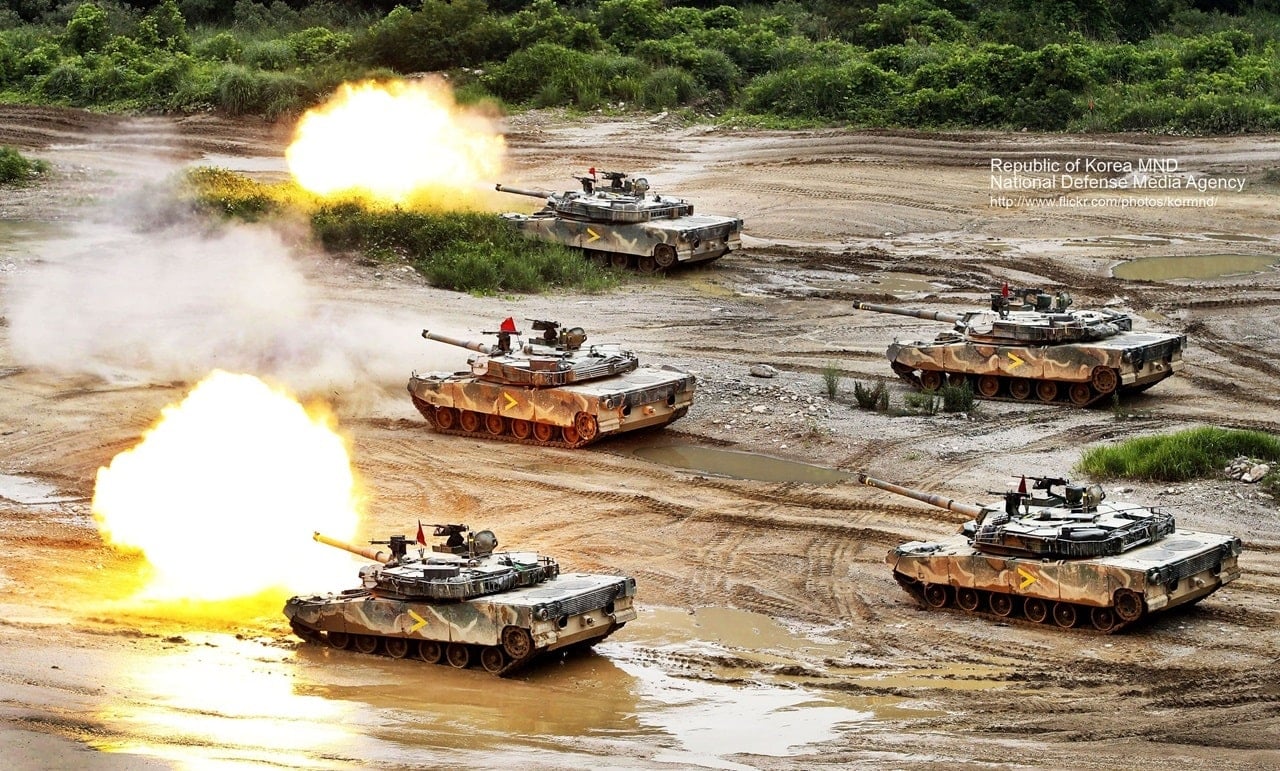
The 120mm main gun depends on an advanced fire-control system. The K2 uses lock-on targeting, thanks to an Extremely High-Frequency radar system, a Raman laser rangefinder, and a crosswind sensor. This means the K2 can acquire and track targets from up to 6 miles out. Accordingly, the K2 main gun is highly effective. It can fire while the tank is moving. It can even engage with low-flying aircraft. The modern fire control system makes tiny adjustments for travel over uneven terrain, calculating each bump in the road to recalibrate the gun moment to moment, resulting in a highly accurate weapon.
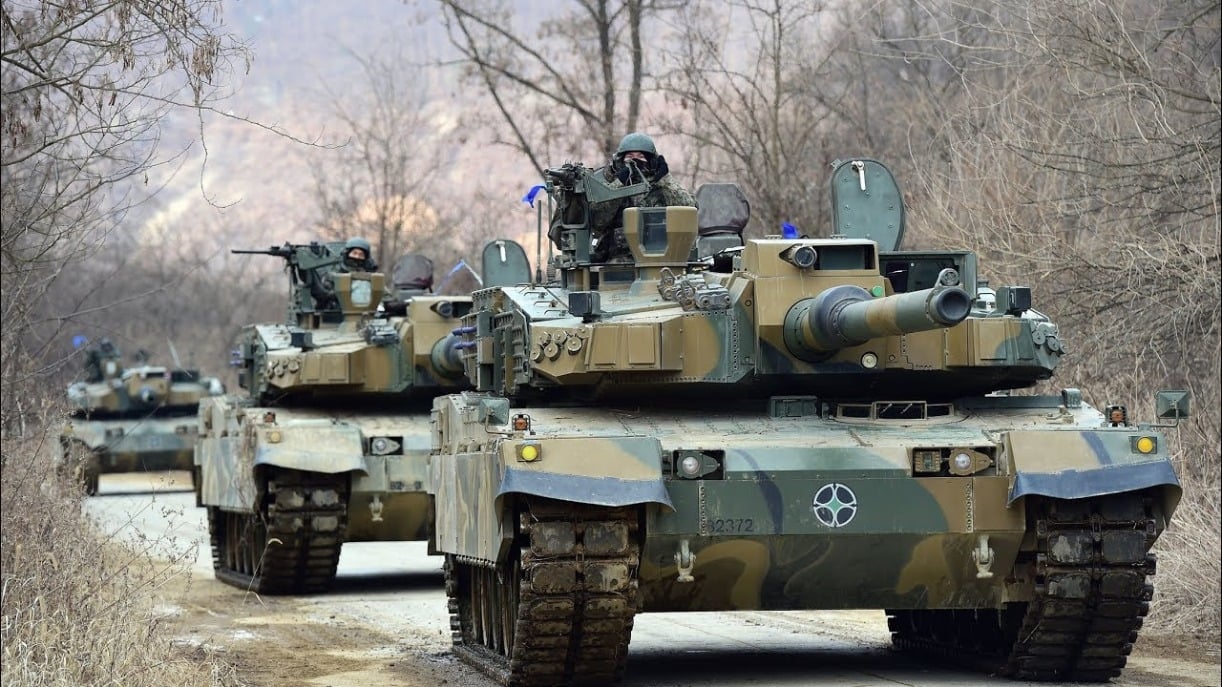
The K2 can move. With a top speed of 70 kilometers per hour, the K2 can accelerate from 0 to 32 kph in just 8.7 seconds. The tank was built to handle off-road-style conditions, maintaining speeds of up to 52 kph. The tank is entirely adept at handling the rugged battlefield environment. It can climb 60-degree slopes and scale 1.8-meter-high vertical objects. The K2 can also ford rivers up to a depth of 4.1 meters with no more than 20 minutes of preparation. The tank uses a snorkel system, and it can take on 500 gallons of water in the chassis, which helps the K2 sink down and maintain traction with the river bottom. Meanwhile, the turret remains watertight.
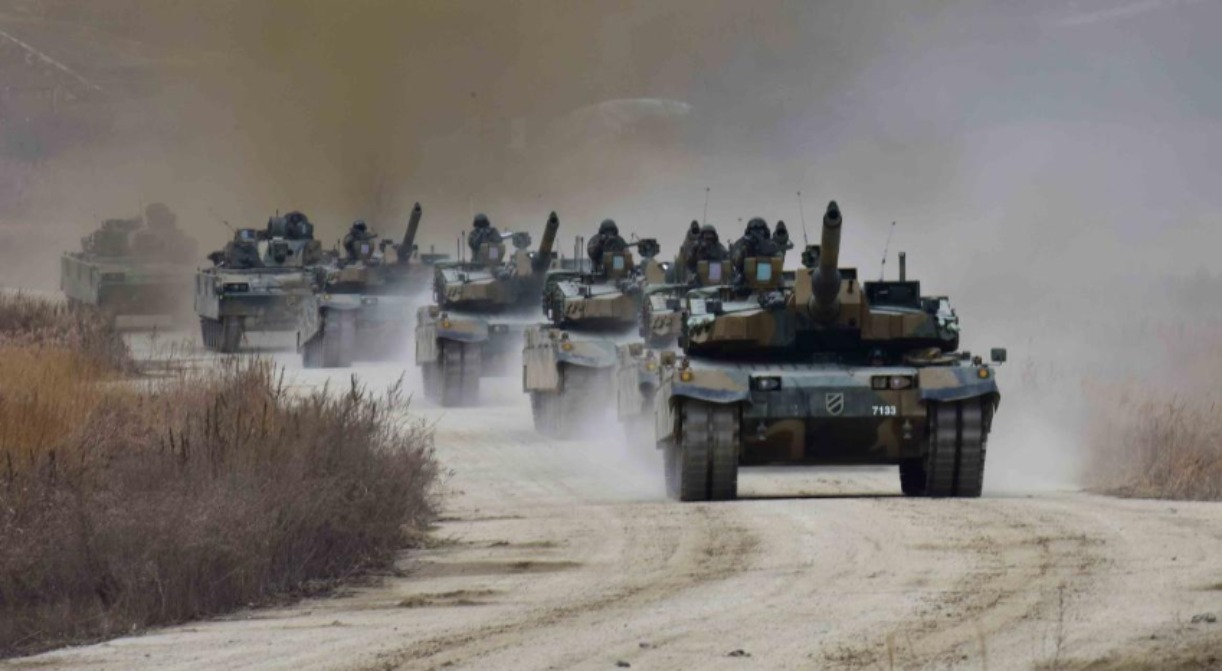
Indeed, the K2 Black Panther is a capable, modern tank. Designed for an 80-year-old feud, hopefully the K2 will never be needed for its design purpose: a land war with North Korea.